
From glass plates to flexible film, from simple snapshot to complicated professional cameras, from single lens reflexes (SLRs) to twin lens reflexes (TLRs), from analogue to digital… AP’s 140 years have seen it all. Here are some of the landmarks encountered along the way.
The beginnings To kick off in 1884, what better than the only camera reviewed (and, in fact, the only illustration) in that first issue of AP? Marion’s Miniature Camera was an all-metal, nickelplated brass design that shot 2x2in plates using a rapid rectilinear lens that focused on a ground-glass screen at the rear, with a fixed aperture and simple shutter. The Marion was quite a revolution for its time, but the major landmark came four years later when inventor and entrepreneur George Eastman aimed the first roll film camera at amateurs and called it The Kodak. Professional photographers, meanwhile, clung onto their plate cameras and, in 1895, cabinet maker Frederick Sanderson produced a new kind of model to help with his interest in architectural photography. The Sanderson Universal Swing Front Camera used a lens panel supported in four slotted arms, two on each side and locked by small knurled nuts. Using these, the lens panel could be made to rise and fall like other cameras, but also to swing from side to side or tilt up and down. The versatility of movement gave a new degree of composition and perspective control.
The Kodak Brownie was born in 1900 and became one of the most iconic camera names of all time. In 1912 Kodak launched the Vest Pocket Kodak, the first camera to use 127 size film. The VPK, as it became known, was a folding design with the lens panel pulled out from the body on scissor-like struts. Early VPKs used a simple meniscus lens, soon replaced by a Kodak Anastigmat f/8. Varying apertures and shutter speeds, with exposure instructions printed minutely on a plate around the lens, made the camera more versatile for the serious amateur photographer.
Denne historien er fra September 24, 2024-utgaven av Amateur Photographer.
Start din 7-dagers gratis prøveperiode på Magzter GOLD for å få tilgang til tusenvis av utvalgte premiumhistorier og 9000+ magasiner og aviser.
Allerede abonnent ? Logg på
Denne historien er fra September 24, 2024-utgaven av Amateur Photographer.
Start din 7-dagers gratis prøveperiode på Magzter GOLD for å få tilgang til tusenvis av utvalgte premiumhistorier og 9000+ magasiner og aviser.
Allerede abonnent? Logg på

Calling The Shots: A Queer History of Photography
Offering an unprecedented view of photographic history through a queer lens, this is a wonderful and powerful book, says
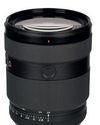
Large-aperture standard zoom, too
SONY has also revealed a new premium standard zoom, the FE 28-70mm F2 GM.
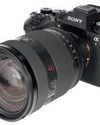
Super-fast, high-res Sony Alpha Ai II
SONY has announced its new professional full-frame flagship camera, the Alpha A1 II.
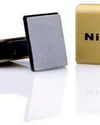
39 awesome accessories
Our round-up of the best accessories we've used and reviewed this year, along with some old favourites. There's something here for every budget, starting from just £7, including tripods, bags, filters and much more

Such a thing as society
This autumn sees the launch of a major new book and exhibition devoted to examining the multiplicities of photography during 1980s Britain. Peter Dench finds out more

Join Club
The sociable Canvey Island Photographic Club is keen to grow its in-person meet ups

Capturing flight
Winners and finalists of Bird Photographer of the Year share their tips for success with Hollie Latham Hucker
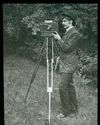
140 years of change
AP has become the world’s oldest surviving consumer photo magazine because we have moved with the times, says Nigel Atherton

Preserving history in platinum
A deep dive into the meticulous art of platinum printing, and the collaboration between the Royal Geographical Society and Salto Ulbeek. Mike Crawford explores how they brought historical photographs to life with enduring beauty and precision
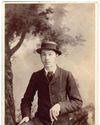
Life in the past lane
What was life like for an amateur photographer in 1884? John Wade takes a trip back in time